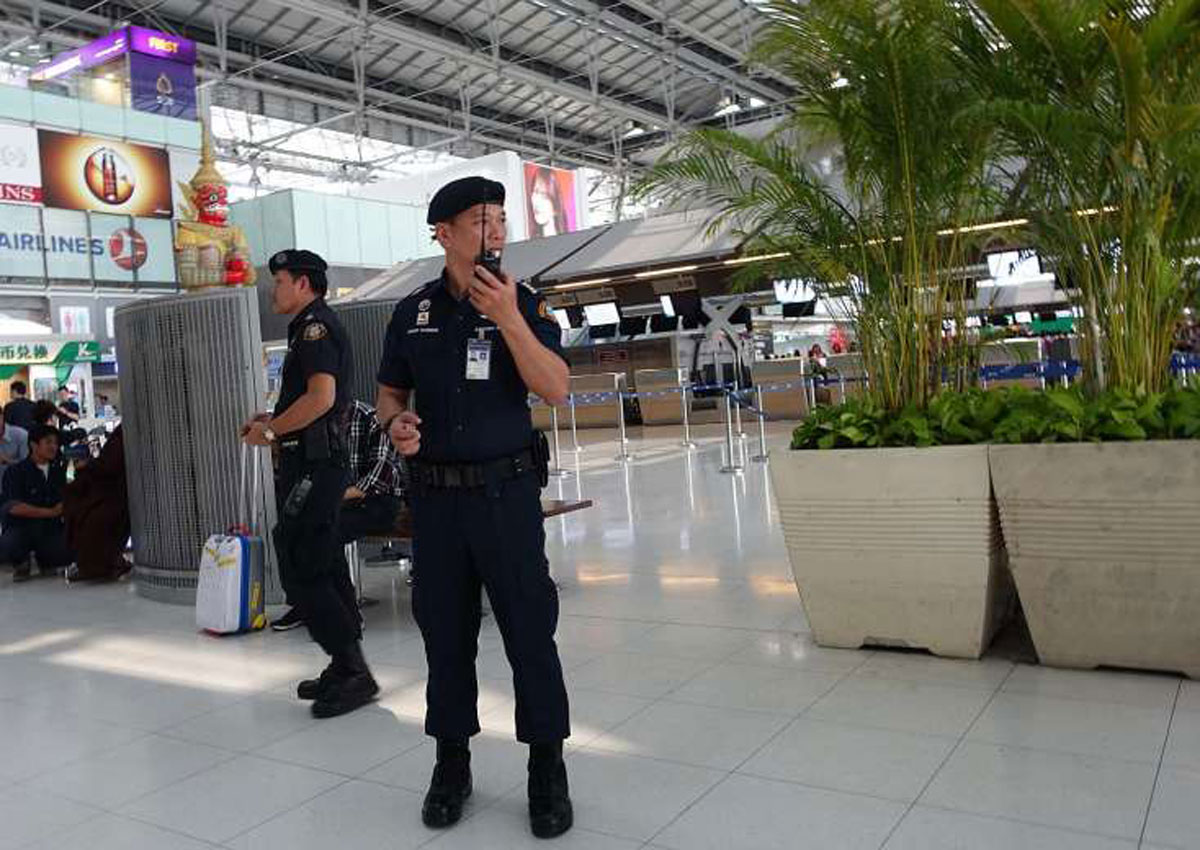Amid the bustle of Suvarnabhumi Airport, Danish tourist Rebaz Kaka feels safe enough to snooze by his backpack while waiting for his flight out of Bangkok.
“I feel secure,” the 21-year-old student tells The Sunday Times. “But sometimes when I see many (security officers) in uniforms, I get a bit worried.”
Visitors like him make tightening security a balancing act as Thailand’s main gateway tries to prevent bombings similar to what occurred in Brussels on Tuesday.
“I don’t want people who come to Suvarnabhumi to feel unsafe,” says Mr Kittipong Kittikachorn, its vice- president of security. “So we try to put more non-uniformed officers on the grounds.”
Still, uniformed security staff kept a watchful eye over passengers at the check-in counters when The Sunday Times visited the airport on Friday.
The airport is designed to cater to 45 million passengers a year, but currently handles more than 50 million. The overcrowding makes policing more challenging.
Security at the airport, which was already at Level 3 – the second highest tier – before the Brussels bombings, was tightened further after the attacks.
This meant that random checks were done on check-in baggage as well as passengers, on top of existing arrangements. Sniffer dogs have also been deployed. These measures will be reviewed after one month.
In the longer term, the airport will upgrade its surveillance camera system with facial recognition technology, as well as set up a screening system for passengers entering the airport from its train station underground, says Mr Kittipong.
Meanwhile, police are increasing their frequency of patrols, as well as the number of officers on patrols, around embassies and major tourist destinations such as Phuket and Samui island to deter would-be attackers, according to national police spokesman Dejnarong Suthicharnbancha.
This will continue until the Songkran festival next month, which is a major annual draw for tourists.
Still, security analyst Anthony Davis from IHS Jane’s stresses that counter-terrorism has far more to do with collecting and harnessing intelligence than securing potentially vulnerable facilities.
“Terrorist threats obviously extend far beyond the vulnerability of any given facility,” he says.
tanhy@sph.com.sg

This article was first published on March 27, 2016.
Get a copy of The Straits Times or go to straitstimes.com for more stories.





